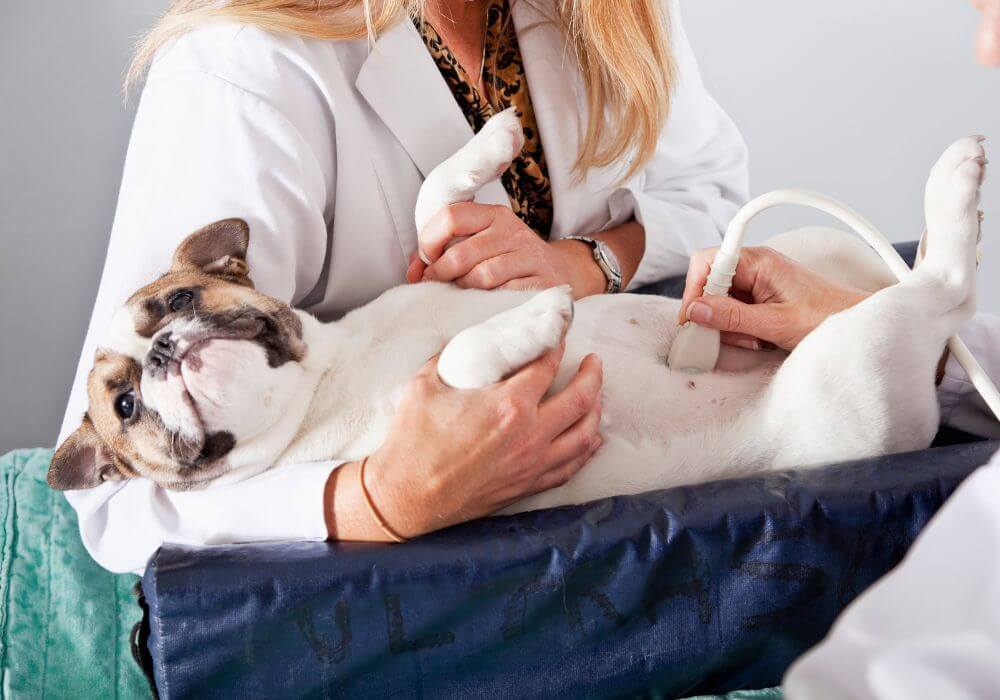Advanced Pet Diagnostic Imaging Solutions for Superior Healthcare
In an effort to provide your pet with superior medical care, we perform diagnostic imaging services to supplement prognosis. Medical imaging employs the use of machinery to give a photographic representation of abnormalities or injuries. In performing diagnostic imaging, our veterinarians can provide a safe, accurate diagnosis and promptly treat the problem.
Types of diagnostic imaging we offer:
- Digital X-rays: Radiographs (X-rays) are usually the first test administered to evaluate your pet. Our office utilizes digital X-rays because they are more accurate and display a higher contrast. Because of their accuracy, technicians are able to take fewer images resulting in less pet discomfort. Digital X-rays also project less radiation than traditional X-rays, which allows your pet to avoid unnecessary exposure.
- Ultrasound: Ultrasounds are another form of imaging. This diagnostic is perfect for pets in sensitive situations (e.g. pregnancy), pets that might be suffering from abdominal disease, or pets who have urinary tract issues. Ultrasounds are very gentle and are typically used to examine the abdominal and chest regions.

Reasons for Diagnostic Imaging:
- Assess facial swelling and dental problems: Diagnostic imaging helps pinpoint the extent of facial swelling and dental issues, guiding comprehensive treatment plans for your pet’s oral health.
- Detect possible bladder stones: Our imaging capabilities enable early detection of bladder infections, ensuring timely intervention to alleviate discomfort and prevent complications.
- Determine the location of broken bones or fractures: We utilize advanced imaging to precisely locate and evaluate bone fractures, guiding effective treatment strategies for your pet’s recovery.
- Evaluate the status of a pet’s pregnancy: Through diagnostic imaging, we monitor pregnancy progress, ensuring maternal health and providing insights into fetal development for proactive care.
- Help identify if a pet has heart disease: Diagnostic imaging aids in early detection of heart disease, allowing prompt treatment to manage symptoms and improve heart health in pets.
- Help obtain a biopsy sample: Our imaging technology facilitates safe and accurate biopsy sampling, crucial for diagnosing health conditions and planning targeted therapies.
- Locate foreign bodies that a pet might have swallowed: Utilizing imaging, we swiftly locate and assess swallowed foreign objects, enabling timely interventions to prevent digestive complications.
What Does Diagnostic Imaging Involve?
The process for getting images of your pet depends on what type of diagnostic that is being performed and the size of your pet. Images are often taken with the pet lying down in various positions that allow our veterinarians to examine the problem area.
Pets with a disease or condition often feel increased anxiety and stress. Because of this stress, they can be uncooperative during digital imaging procedures. In these situations, our staff patiently tries to make your pet feel comfortable and guide them to cooperate. If a pet is aggressive or remains unwilling, the veterinarian may opt to mildly sedate your pet while performing diagnostic imaging. Also, for tests that require a pet to be absolutely still, anesthesia is typically administered.
If you have any questions about digital imaging services, please feel free to contact our office.
